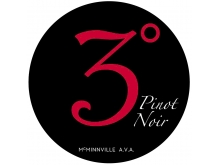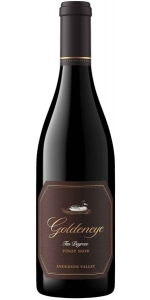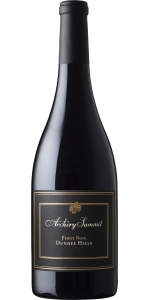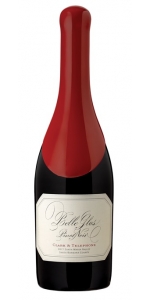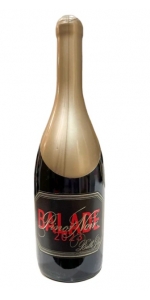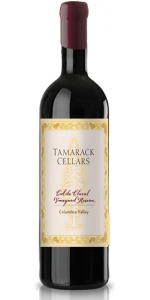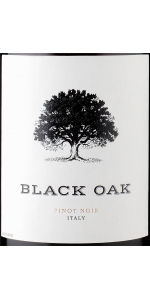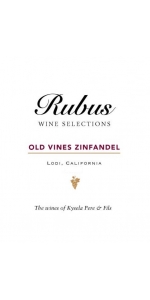Maysara 3 Degrees Pinot Noir 2019
| Country: | United States |
| Regions: | Oregon Oregon (Willamette) |
| Winery: | Maysara Winery |
| Grape Type: | Pinot Noir |
| Organic: | Yes |
| Vintage: | 2019 |
| Bottle Size: | 750 ml |
Maysara 3 Degrees Pinot Noir is 100 percent Pinot Noir
Aged 11 months in neutral French oak barrels
3° (Three Degrees) Pinot Noir is handcrafted by the Momtazi sisters whose differing personalities; combined with elegance, finesse and balance, reflect the dynamic characteristics of the Momtazi Vineyard. The sisters, Tahmiene, Naseem and Hanna, set out to make a pinot that tastes great and has the highest quality fruit all while being affordable for everyone.
Intriguing notes of fresh earth, oak leaves and pepper are woven together in the initial impression. Lifted, verdant tannins give this wine a firm structure for the vintage to showcase its characteristic starry-eyed smile.
At Maysara Winery & Momtazi Vineyard, we are committed to cap-turing the complete expression of our land and conveying it to you through superior quality in every bottle. We practice only low-impact, holistic farming methods in our Demeter Certified Biodynamic Vineyard. We are confident these practices are the best way to capture the true essence of the soil in our fruit and ensure health of our vines and the unique accent of our terroir for generations. This philosophy is carried into the cellar, where Demeter Certified Biodynamic wine-making practices produce wines with intensity, sophistication and elegance while maintaining a purity of both fruit and earth.
Momtazi Vineyard.
A vibrant and snappy pinot that will shine and refresh when paired with curries, spetzatinas and rich stews.
In 1996, building on their tradition of excellence established at Duckhorn Vineyards, and their growing love of Pinot Noir, Dan and Margaret Duckhorn came to Anderson Valley to found Goldeneye. Anderson Valley has since earned acclaim as one of the world’s greatest Pinot Noir regions. Representing the pinnacle of our winemaking portfolio, Ten Degrees is made from only our finest lots, making it a Pinot Noir of unparalleled grace and grandeur.
Reviews:
From the best lots on the Golden- eye Estate, this wine aged in French oak for 16 months. Scents of wild cherry and sage are off the charts. Undeniable vibrancy, generous fruit, and floral notes create a mael- strom of flavor and texture that complements the wine's intensely high energy. Earthy, salty notes manifest in a kiss of soil, balsamic, cinnamon, and cedar.
-Tasting Panel 96 Points
A beautiful blend of the best barrels of all the single vineyards and it shows wonderful complexity and thoughtfulness. Layered and complete, giving you so much flavor and deliciousness.
-James Suckling 96 Points
Archery Summit Estate Pinot Noir Dundee Hills is made from 100 percent Pinot Noir.
Archery Summit Dundee Hills Pinot Noir touts all the hallmarks of this storied appellation. It begins with hints of ripe plum skin, ocean air, baking spices, and cocoa powder dustiness on the nose. The palate is just as expressive, with fresh, juicy red fruit backed by graceful tannins, a complex brininess, and a mouth-watering acidity. Finishing with spiced oak and a mouth-coating basalt minerality, this wine is great now and will be for years to come.
The Dundee Hills Pinot Noir touts all the hallmarks of Archery Summit's storied appellation. It begins with brambleberry, ripe rainier cherry, blackberry blossoms, cocoa powder, and spice on the nose. The palate is just as lively, with fresh, juicy red fruit backed by graceful tannins and acid. Finishing with spiced oak and a mouth-coating minerality, this wine is a case study in the magic of the Dundee Hills.
Yet, thanks to water reserves in the soil itself and some timely viticultural movements, the vineyards persevered through the heat and water limitations. The dryer season accelerated picking times, making the fruit ripen a bit earlier than normal. September rewarded us with cool nights and the lower-than average yields set us up to make wines with abundant character, intensity and balance. The winery is so grateful for the moisture-abundant, microbially-rich and chemical-free soils that lovingly nudged the vines towards the finish line.
Review:
Expressive and sleekly built, with floral raspberry and cherry flavors laced with cinnamon and dusky spices. Finishes with medium-grained tannins. Drink now through 2032.
-Wine Spectator 92 Points
Belle Glos Clark and Telephone Vineyard Pinot Noir is made from 100 percent Pinot Noir.
The Clark & Telephone Vineyard was established in 1972 and planted with “own root” Martini clone vines. Located just 13 miles from the ocean and situated on a west-facing slope, this vineyard experiences weather patterns that pull from west to east to bring cool fog and coastal breezes inland until August when Santa Ana winds begin.
We harvested early in the morning so the fruit would arrive at the winery while the grapes were still cool to preserve their vineyard-fresh flavors. After destemming (but not crushing) the berries, we cold-soaked the must for 14 days to soften the skins and allow for ideal extraction. During fermentation in a combination of closed and open-top stainless steel fermenters, we used both punch-down and pump-over techniques to extract color and phenolics. We aged the wine in 100% French oak (60% new) for up to 12 months. After the wine underwent malolactic fermentation, we racked it twice before bottling.
Deep ruby red in color with lush aromas of ripe cherry, nutmeg, dark chocolate and holiday baking spices. Bold and complex flavors of black plum, crushed raspberry and blueberry pie linger on the palate. The texture is rich and lively, and leads into a warm and structured finish.
Review:
Burnished black raspberry and graphite form a bond on a foundation of dark chocolate and sweet tobacco. White pepper outlines rose petal on the well-structured palate before perky acidity and a creamy weightiness highlight the lengthy finish.
-Tasting Panel 95 Points
Maysara Jamsheed Pinot Noir is made of 100 percent Pinot Noir
11 months in 10% new French oak barrels
According to ancient Persian legend, King Jamsheed was able to observe his entire realm by peering into his full wine goblet.
Beginning with a generous core of red-black fruits, the McMinnville AVA saunters over the palate with both bravado and grace. Blackberry and fresh cracked pepper entwine perfectly with matured and lengthy tannins on the finish. The depth of this unassuming bottling is always an adventure to mine. Some older prospectors hear tell of herbal notes… silver sage? rosemary?
At Maysara Winery & Momtazi Vineyard, we are committed to cap-turing the complete expression of our land and conveying it to you through superior quality in every bottle. We practice only low-impact, holistic farming methods in our Demeter Certified Biodynamic Vineyard. We are confident these practices are the best way to capture the true essence of the soil in our fruit and ensure health of our vines and the unique accent of our terroir for generations. This philosophy is carried into the cellar, where Demeter Certified Biodynamic wine-making practices produce wines with intensity, sophistication and elegance while maintaining a purity of both fruit and earth.
Always offering generous accessibility, pair Jamsheed with darker fowl, grilled meats or salmon, even caramelized veggies.
Belle Glos Balade Pinot Noir is made from 100 percent Pinot Noir.
Tasting Notes
he word "Balade", French for "Wandering," is a fitting term for Belle Glos' annual exploration of single-vineyard pinot noir tracts on the west coast. As such, each vintage is very limited.
This Pinot Noir opens with aromas of blackberry, cherry, and delicate floral notes mingling with hints of cedar and baking spice. On the palate, you’ll experience layers of dark plum, juicy black raspberry, and subtle undertones of cocoa and vanilla, all wrapped in a plush, silky texture. Soft tannins and a balanced acidity contribute to a smooth, lingering finish, making it a perfect match for grilled meats, roasted vegetables, or simply as a luxurious glass to enjoy on its own.
Review:
This appellation is an ideal place to produce this brand's bold style of Pinot Noir, as elegance persists with power. In this bottling, aromas of black plum, blackberry and mahogany lead into a rich, creamy palate layered in wild mint, pepper and dark fruit. A searing acidity leads into a candied vanilla finish.
— Matt Kettmann Wine Enthusiast: 94 Points
Maysara 3 Degrees Pinot Noir is 100 percent Pinot Noir
Aged 11 months in neutral French oak barrels
3° (Three Degrees) Pinot Noir is handcrafted by the Momtazi sisters whose differing personalities; combined with elegance, finesse and balance, reflect the dynamic characteristics of the Momtazi Vineyard. The sisters, Tahmiene, Naseem and Hanna, set out to make a pinot that tastes great and has the highest quality fruit all while being affordable for everyone.
Intriguing notes of fresh earth, oak leaves and pepper are woven together in the initial impression. Lifted, verdant tannins give this wine a firm structure for the vintage to showcase its characteristic starry-eyed smile.
At Maysara Winery & Momtazi Vineyard, we are committed to cap-turing the complete expression of our land and conveying it to you through superior quality in every bottle. We practice only low-impact, holistic farming methods in our Demeter Certified Biodynamic Vineyard. We are confident these practices are the best way to capture the true essence of the soil in our fruit and ensure health of our vines and the unique accent of our terroir for generations. This philosophy is carried into the cellar, where Demeter Certified Biodynamic wine-making practices produce wines with intensity, sophistication and elegance while maintaining a purity of both fruit and earth.
Momtazi Vineyard.
A vibrant and snappy pinot that will shine and refresh when paired with curries, spetzatinas and rich stews.
Maysara winery is nestled in the foothills of the McMinnville AVA, in Oregon's Willamette Valley. The Momtazi family is dedicated to biodynamic farming practices. What makes Maysara unique is that there is over 600 feet elevation gain in the vineyards. From the property's lowest point at 120 feet to around 600 feet, the soil is clay and loam based (similar to most of the valley). From 600-780 feet, there is Jory soil (a red earth loaded with iron and mineral deposits). Quite a bit of the McMinnville AVA has this top soil. What makes this part of Maysara's vineyard special is that there's 10 feet of this earth before the base of loam and calcareous sub-soil.
Maysara Wines reflect this commitment to terroir, showing a purity of fruit and earth, that are true to the soils from which they come.
On April 1st, 1997, Moe and Flora Momtazi bought 496 (of the now 532) acres of abandoned wheat farm just south of their home in McMinnville, Oregon. Though wild and untouched, Moe’s vision for the Momtazi Estate was born looking out across the thriving hills of land that had been free of chemicals for seven years.
Though using chemicals would have been faster and more economical while building infrastructure and reclaiming the land, not a single one has or will be used throughout the estate. Instead, the ground was turned over multiple times during the summer of 1997 in order to eliminate unwanted plants and weeds while returning the soil to a usable state.
They began planting in March of 1998, with 13 acres of self-rooted pommard pinot noir vines. After months of researching the relationships between specific pinot noir clones, rootstocks and the different soil types found across the estate, over 120,000 plants were grafted in the greenhouses and planted in the vineyard by the end of the summer in 1999.
They believe that 90% of winemaking takes place in the vineyard. Because of this, they have held themselves to a strict form of land use acting as stewards of the land in order to nurture and reap the rewards naturally. Their alternative approach to chemical use is growing a variety of medicinal and dynamic flowers and herbs that they make into compost teas. By steeping into teas, they’re able to harness the beneficial properties of each flower and herb and embody a “from nature to nature” philosophy. As such, their multiple compost piles and Biodynamic preparations are extremely important for their vineyards because the resulting humus is worked into their vineyard in order to achieve long-term soil and vine health.
Their unique niche in the foothills of Oregon’s Coast Range separates them from valley weather influences providing warmer days and cooler nights with less precipitation during the harvest season. The property has highly diversified soil types consisting primarily of Nekia and Yamhill series, laced with veins of Peavine and Jory. By training their vines to produce between 1.75-2.25 tons per acre, they believe they are getting the best fruit possible from their unique terroir.
BIODYNAMICS
Biodynamics is an ultra-organic way of farming stemming from the two words; biological and dynamic. The biological aspect is practiced throughout organic farming and includes; composting, cover cropping, green manuring, cultivation, companion planting and integration of animals throughout the farm. The dynamic effects are extremely important, maybe even more-so than the biological. They include planning and planting by a calendar (i.e. near and far stars), Biodynamic composting, peppering and radionics, along with homeopathy. Therefore, both the biological & the dynamic effects are practiced and implemented.
In Biodynamics the farm is considered a living organism — having its own individuality and soul. As such the farm is believed to be sick if it imports any fertilizer from the outside; therefore being self sufficient is an important part of Biodynamic farming. Soil is considered to be the foundation of agriculture, therefore enriching the soil is an important task. A farmer is comparable to the conductor of an orchestra — bringing all the individual forces and energies into harmony by playing the right notes at the right time.
We distribute our own compost, inoculated with the Biodynamic preparations and distribute it underneath the vines as needed. We have also eliminated the use of minerals which need to be mined from the earth. Instead, we grow a variety of herbs and flowers that have been used medicinally for thousands of years (i.e. Chamomile, Dandelion, Yarrow, Valerian, Horsetail, Stinging Nettle, etc.). We make teas with them to be sprayed either on the foliage (on leaf days) or injected through the irrigation line to the root system (on root days). We apply these teas in homeopathic amounts in order to maintain the vitality and healthy immune system of the plants. Plants do not need to be shocked with penicillin like treatments if they are “brought up” with healthy immunities to pests and diseases.
In the winery, we allow the native yeast found on the grape skins to naturally initiate primary fermentation. No commercial yeast or enzyme use is allowed and we do not adjust acidity or add sugar. The secondary or malolactic fermentation also occurs on its own without any additives.
MCMINNVILLE AVA
The McMinnville American Viticultural Area is a sub-appellation of the Willamette Valley, nestled in the Coast Range foothills of Yamhill County that was created in 2005 after a successful petition that began in 2002. The soils found in the McMinnville AVA are primarily made up of both sedimentary and volcanic soils such as loams and silts with an underlying base of basalt. Beneath an average of 20-40 inches of clay and soil, lies hard stone mixed with basalt pebbles and compressed sediment that gives off minerality. It’s this unique soil diversity and the location at the mouth of the Van Duzer corridor that gives the McMinnville Pinot Noirs their dark fruit flavors and spicy earth tones, while allowing whites like Pinot Gris, Blanc and Riesling to attain a bright fruit-forwardness and vibrant acidity.
Tamarack Ciel de Cheval Vineyard Reserve holds dark and chocolate nauces, spiced with pretty notes of allspice and clove, this wine is round and rich, bursting with ripe berries, combined with an earthy complexity and a velvety finish.
Cabernet Sauvignon makes up half of this blend, with the balance Cabernet Franc, Petit Verdot and Merlot
The wine spent 22 months on 75% new French oak with the remaining 25% second vintage French oak. Select barrels from the best forests of Taransaud, Boutes, Quintessance, and Vicard cooperages.
Black Oak Pinot Noir is made from 100 percent Pinot Noir.
The Black Oak Pinot Noir is a glowing example of what they do best in Puglia, make great wine. Deep ruby in color with a lovely bouquet of sweet spices, even a dusting of cinnamon and nutmeg. The flavors are flowing with ripe black cherry. This medium-bodied wine with its fresh acidity will complement many meal selections.
SALE!
Lodi, American Viticulture Area (AVA) – The Lodi AVA is located in the northern end of the San Joaquin Valley, Central Valley California, east of the San Francisco Bay. Lodi has warm days and cool nights, similar to the Mediterranean climate. The lower temperatures that occur in Lodi result in fruit with good acidity. A wide range of soils are found in the Lodi AVA, but they generally are deep, loamy, sandy, rocky soils similar to that found in southern Rhone valley.
The Lodi appellation totals almost one half million acres, and the approximately eight hundred growers farm roughly 90,000 acres. Lodi produces more Cabernet Sauvignon, Chardonnay, Merlot, Sauvignon Blanc, and Zinfandel than any other wine region in California, but it is probably best known for its old vine Zinfandel. The vines are often head trained giving them a classic old world appearance.
Zinfandel – The Zinfandel grape is a hearty variety that produces grapes with high sugar levels, often resulting in wines with a high alcohol content. Thought to be a relative of Primitivo that is found in southeast of Italy (the boot heel), Zinfandel can be made into a wide range of wine styles, including White Zinfandel, light or full bodied red wines, and even late harvest desert style wine. However Zinfandel, especially Old Vine Zinfandel from Lodi, is usually made into a full bodied, spicy red wine with characteristics of red fruit, raspberry, and cherry.
Produced in the heart of Lodi AVA.
Rubus Zinfandel Lodi is made from 98% Zinfandel + 2% Cabernet Sauvignon
Bottled after aging in French and American oak for 9 months.
Rubus Zinfandel Lodi presents with ruby red in color, with red fruit, raspberry, and spice on the nose. This wine is medium in body, with notes of ripe cherry, cedar box, cinnamon, anise, black pepper, and hint of smoke on the palate. It has a long, silky finish.
Selected by Fran Kysela MS.
- back
Inglenook Rutherford Cabernet Sauvignon is made from 96% Cabernet Sauvignon, 4% Cabernet Franc.
Stunningly deep ruby in color, the 2019 Cabernet Sauvignon opens with heady aromas of brambly black cherry, vanilla, warm brioche, and crème de cassis. As the wine warms on the palate, notes of red cherry, graphite and fennel emerge, as very polished, refined tannins carry the wine into a long, fragrant finish. Layered flavors, good tension, and a perfect integration of wine and oak interact to create this classic expression of Inglenook Cabernet Sauvignon.
Review:
This shows notes of ripe blackberries and blackcurrants with hints of licorice, cloves, walnuts and chocolate. It has full body and a velvety tannin structure. Juicy and vibrant fruit on the palate with a touch of earthiness. Smooth and delicious. Long, fruity finish. Very pure fruit. Try after 2024.
-James Suckling 95 points
Argot Simpatico Ranch Chardonnay is made from 100 percent Chardonnay.
Powerful aromas of key-lime, white flowers, orange blossoms and a fierce, flinty, sauvage note define a wildly complex nose. Once in the mouth, gracefully pronounced textures coat the palate delivering an exotic interpretation of cool-climate Chardonnay character — lime peel, orange blossom, ginger and clove —lingerings deep into a vibrant finish.
Planted 1978. Shallow volcanic soils on the gently-sloped, south-facing foothills of Bennett Peak on Bennett Valley’s floor. One of California’s coolest Chardonnay vineyards. In the final year of 3-year draught cycle, Simpatico Ranch saw its earliest ever harvest and smallest crop, exposing a reserve of exoticism and minerality previously untapped. A watershed vintage for both the vineyard, and appellation. Night harvested by hand on 9/16, whole-cluster pressed direct to barrel; no settling to ensure maximum lees contact. Barrel fermented on heavy lees. Malolactic fermentation. 16 months in French oak, 50% new. Finished 2 months in steel tank, low Sulphur during barrel elevage.
Review:
The 2022 Chardonnay Simpatico Ranch comes bounding out with exuberant notes of juicy peaches, ripe yellow apples, and persimmons, followed by hints of fresh ginger and toasted almonds. The medium to full-bodied palate is soft spoken and savory with a creaminess to the texture and lovely freshness defining the long whispery finish.
-Wine Palate 96 Points

